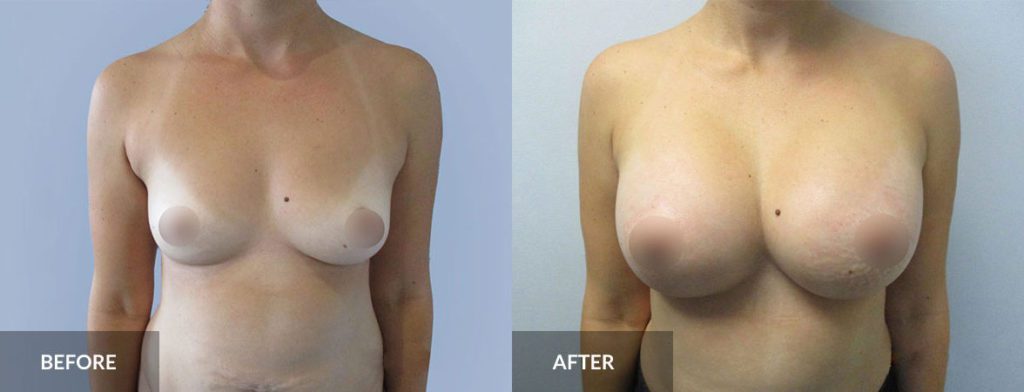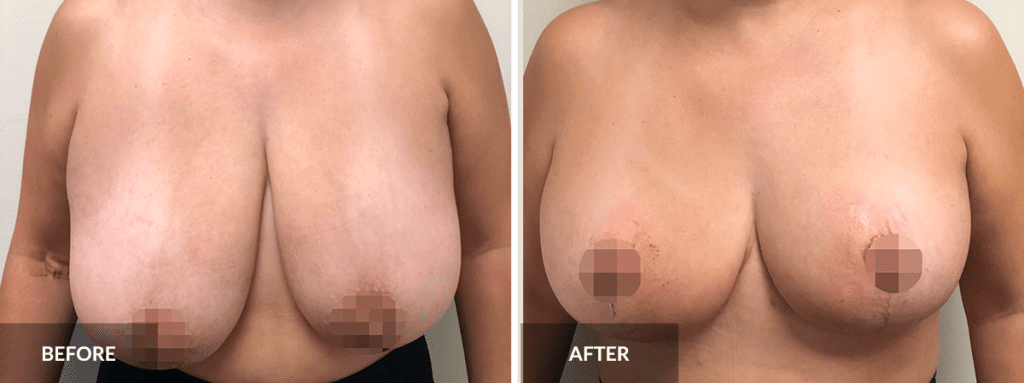Is 30 really the new 20? Perhaps when you consider the current pregnancy trends, it just may be. Parents are waiting on average six years later to have their first child than they did 20 years ago‚ the average age of a first-time mother in 2020 was 27 years old. So, it’s very reasonable that a new mom may have already had or may start to consider cosmetic surgery not long after giving birth.
Normalmente, las mujeres que se plantean ponerse implantes mamarios antes de formar una familia tienen varias preguntas sobre cómo puede afectar un aumento mamario a su embarazo. Sin embargo, las que ya tienen implantes mamarios, pero planean quedarse embarazadas pronto, también deben informarse sobre cómo afectará el embarazo a sus implantes en el futuro. La buena noticia es que se ha investigado mucho sobre los implantes mamarios para garantizar que son seguros antes, durante y después del embarazo.
Sigue leyendo para conocer las respuestas a las preguntas más acuciantes que suelen plantearse las mamás sobre el embarazo, el parto, la lactancia y los implantes mamarios.
1. ¿Cuándo operarse?
If you’re thinking of getting a breast augmentation and haven’t started a family yet, it is best to delay pregnancy for at least a year. Taking this break will allow your body to properly recover from surgery and ensure you achieve the best results. If, on the other hand, you’ve recently given birth and are considering surgery, we recommend that you wait 3-6 months after you have stopped breastfeeding before undergoing treatment.
You’ll want to ensure that all hormonal changes have subsided and that you are at a stable, healthy weight. Your weight is important because fluctuations in weight, whether from hormonal changes or natural weight loss or gain, can impact breast augmentation surgery.
You should also consider whether you would like to have more children before getting breast implants. If you plan on expanding your family, it is best to wait until after you’ve finished having children before having a breast augmentation. Weight fluctuations due to pregnancy often cause the skin to stretch or relax, resulting in stretch marks and/or stretched skin. These changes can naturally occur in all women, whether they have implants or not. However, women who already have implants may find it necessary to undergo additional procedures to regain their pre-pregnancy appearance.

2. Lactancia materna
One of the most frequently asked questions surrounding breast implants is whether a woman will retain her ability to breastfeed. Ultimately, there is no way to definitively predict whether or not you will be able to breastfeed after treatment. However, in most cases, a breast augmentation doesn’t interfere with a woman’s ability to breastfeed since surgery usually does not involve the ducts.
Algunas pacientes pueden experimentar una baja producción de leche o tener problemas para eliminarla después de la intervención. Debido a que estos son los efectos adversos más comunes, le recomendamos que controle su producción de leche después del tratamiento. Si desea quedarse embarazada después de someterse a una cirugía de aumento mamario, asegúrese de comentar sus planes con su cirujano plástico para obtener los mejores resultados posibles.
3. ¿Es segura para mi bebé la lactancia con implantes?
Will my breast milk be safe for my child if I have implants? It’s a common question that weighs on the minds of many future moms. Luckily, you can rest assured implants do not have any adverse effects on breast milk quality. Many studies have proven that silicone implants are safe for breastfeeding infants. Saline implants are of even less concern and are considered safer for breastfeeding since they are made from natural substances‚ salt and water.
4. ¿Qué ocurre si el embarazo se produce justo después del aumento mamario?
We are all aware that no matter how well we plan, there is always a tiny chance of the inevitable, and the same is true with pregnancy. So, what if you accidentally get pregnant right after having breast augmentation surgery? Even though it is recommended that you wait several months to allow your body to properly recover from breast surgery, you shouldn’t have any issues with the pregnancy itself.
The concern your plastic surgeon will have is primarily based on allowing your body to fully heal, as well as the adjustments that may be required once you deliver. Your body, including your breasts, will undergo many changes during pregnancy, but your breast implants will remain stable throughout and shouldn’t be of concern. The most important thing you can do is to consult your plastic surgeon and your gynecologist as soon you learn that you’re pregnant. Keep a log of any questions you have and express any concerns you have with your doctors.

5. ¿Los implantes causan dolor durante el embarazo?
As your body adjusts to the physical and physiological changes brought on by pregnancy, you will almost certainly experience moments of pain and discomfort at some point. All women will likely experience tenderness, swelling, and more pronounced veins in their breasts due to pregnancy hormones. The increased volume of a woman’s breasts during pregnancy may also cause added pressure on breast implants.
Debido a estos cambios, las mujeres con implantes pueden experimentar un ligero aumento del dolor y las molestias en comparación con las mujeres sin implantes. No obstante, debe consultar a su cirujano plástico siempre que experimente un dolor anormal o molestias intolerables.
At The South Florida Center for Cosmetic Surgery, we are committed to providing the very best breast augmentation treatments. If you are considering getting breast implants, contact us today for an in-person or virtual consultation.




